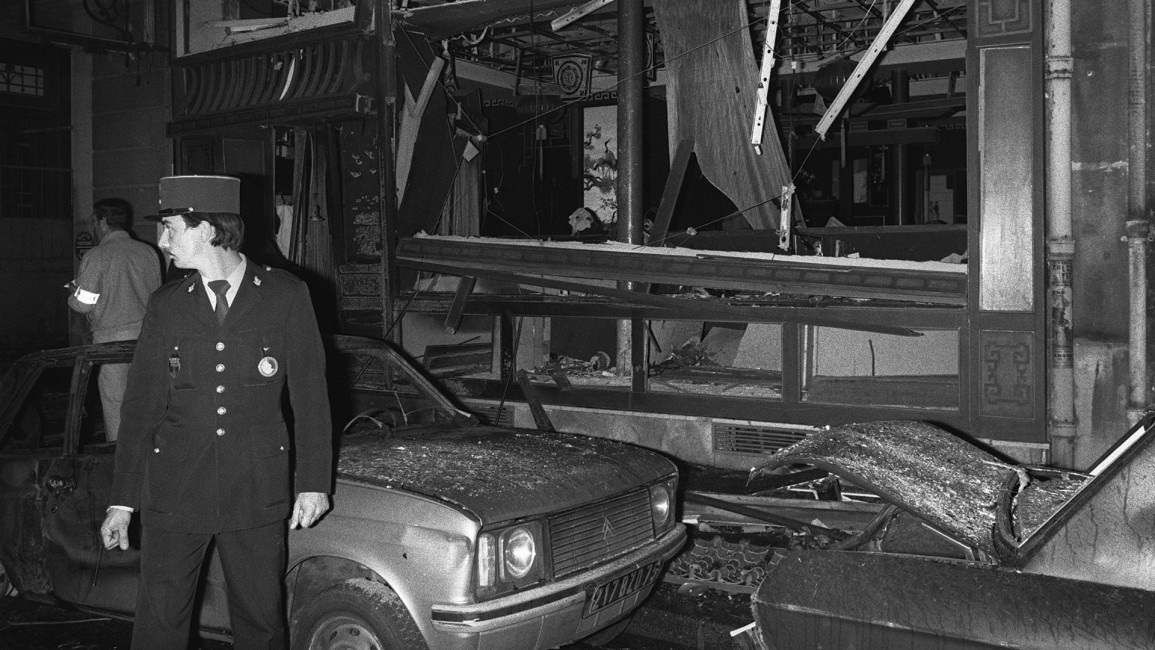
Civil society must prevent Hassan Diab's wrongful conviction
On 14 November 2014, a Canadian citizen named Hassan Diab was extradited to France to face charges connected to a 1980 bombing, which killed four bystanders and injured scores of others outside a synagogue in Paris.
Diab, a former professor of sociology at Carleton University in Ottawa, lost his job six years ago due to the French extradition order.
He has endured detention, as well as very strict bail conditions in Canada which, after putting up $250,000 in bail, required Diab to live under a tight curfew, remain in the Ottawa-Gatineau area, and wear a GPS ankle bracelet that cost him $2,000/month.
At present, Diab sits in a French prison, and could wait up to two years before a French judge determines if he will go to trial.
Why, you may ask, would I care about the key suspect in a horrific terrorist bombing in France? Would I not want justice for the victims and their families? Should France not be given the opportunity to bring Diab to trial so "the victims can have their day in court", as some have argued?
The reality, shockingly, is that the evidence presented against Diab demonstrates unequivocally that he has no connection to this crime.
The case French authorities presented before the Canadian courts relied heavily on unsourced and secret evidence, and was therefore unavailable to Diab and his defence. The evidence presented in court was described by the extradition judge as "very confusing", "convoluted", "problematic" and with conclusions that are "suspect". He noted that "the prospects of conviction in a fair process seem unlikely".
Amnesty International Canada presented a factum to the court, noting that the minister of justice should refuse extradition when there is a real risk that torture-derived evidence would be used at trial.
Ultimately, Diab was extradited to France not because of any hard evidence that would connect him to this crime, but because Canada's unfair and outdated extradition law has tied the hands of the Canadian judicial system.
| The evidence presented against Diab demonstrates unequivocally that he has no connection to this crime. |
Not only do Diab's fingerprints not match those found on a rental car, nor on a French police shoplifting report on the suspected bomber, nor on the suspect's hotel registration card, but the evidence presented by the French authorities related to handwriting was even withdrawn on two occasions, after it was exposed that the comparison samples used did not belong to Diab.
The final handwriting analysis submitted by France was found to be completely flawed and unreliable by five internationally recognised handwriting experts. In the words of one British expert, the analysis report was "demonstrably false".
There are serious doubts being raised about the prospects of a fair trial in France. The evidence being used against Diab is based on secret intelligence, which could have been obtained under torture.
Human Rights Watch's 2008 report, Preempting Justice, criticises the French anti-terror laws, and notes: "The prominent use of intelligence material in judicial investigations, in the context of the close links between judges and the intelligence services, raises concerns about procedural fairness and reliance on evidence obtained from third countries where torture and ill-treatment are routine."
In France, the handwriting analyses based on someone else's writing were submitted to Diab's April 3 bail hearing, despite having been withdrawn from the Canadian courts.
It is evident that, with the use of secret evidence and the continued dependence on completely flawed handwriting reports, Diab is not being subject to a fair process.
The French authorities want to put an end to this case, which, after 35 years, has yet to be resolved. The victims and their families deserve justice. However, justice will not be served by committing a further injustice through a wrongful conviction.
Supporters of Diab in Canada, which include the Canadian Civil Liberties Association, the Canadian Association of University Teachers, the National Union of Public and General Employees, and countless others, have spoken out in support of Diab, pointing out the injustices in his case.
Diab's colleagues in the academic community have vouched for his peaceful nature. Diab himself has always maintained his innocence, claiming that he was not even in France at the time of the bombing, and, contrary to French intelligence, that he has never belonged to a Palestinian organisation.
Diab is not anti-Semitic. On the contrary, he is, by all objective accounts, a man devoted to human rights and social justice, opposing all forms of racism.
It is incumbent on civil society, both in Europe and North America, to continue to pressure our governments to demand the immediate release of Diab, who has been the victim of faulty evidence, and could become the victim of a wrongful conviction - unless we intervene in time.
France must drop this case against Diab and continue pursuing the actual perpetrators of this horrific crime, so that the victims can receive their overdue justice. Canada must demand the return home of a citizen, father, husband, teacher and friend, who is awaiting justice after what he describes as a "Kafkaesque nightmare".
Let us work towards ending his nightmare.
Opinions expressed in this article remain those of the author and do not necessarily reflect those of al-Araby al-Jadeed, its editorial board or staff.


![President Pezeshkian has denounced Israel's attacks on Lebanon [Getty]](/sites/default/files/styles/image_684x385/public/2173482924.jpeg?h=a5f2f23a&itok=q3evVtko)



 Follow the Middle East's top stories in English at The New Arab on Google News
Follow the Middle East's top stories in English at The New Arab on Google News


